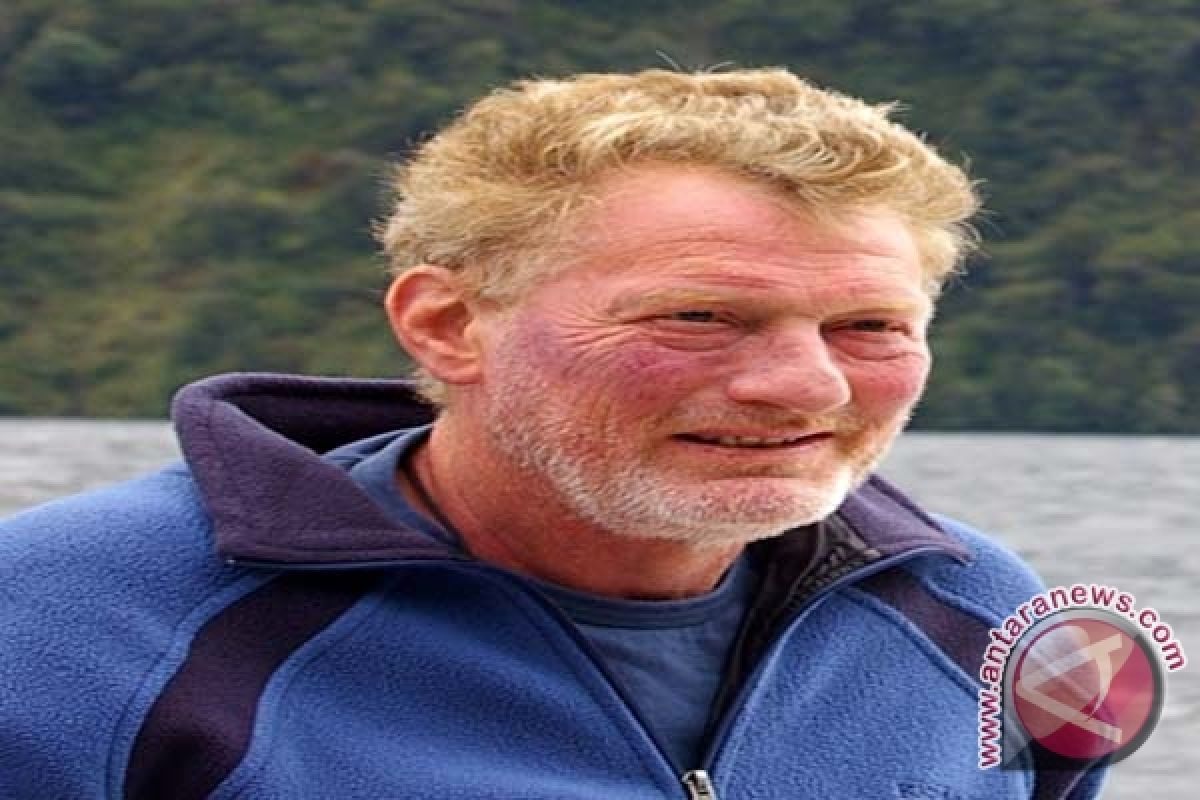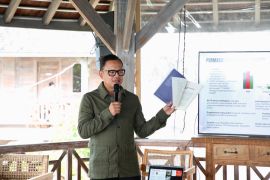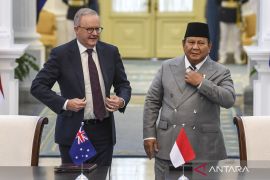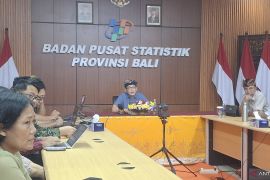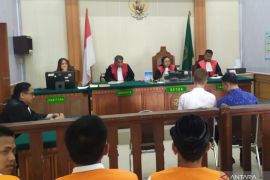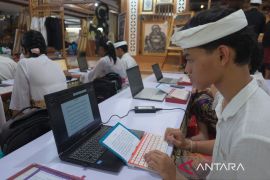John was a man who lived his truth and spoke it. He didn’t choose an easy life in Bali. He chooses a Balinese life. He is remembered as one of the few foreign custodians of Balinese culture who didn’t take – but sharedJakarta (ANTARA) - Bali is so unlike the rest of Indonesia and seems unmoored from the archipelago.
Before the island was scarred by terrorism and corrupted by commerce, it lured foreign adventurers enchanted by the rich spirituality, creating a mystic aura and a pestilence of clichés, paradise, the abode of peace, the island of the gods.
Some of them are Dutch colonial-era artist pioneers, including Hollander Rudolf Bonnet (1895-1978) and German Walter Spies (1895 - 1942). Later came Australians, such as Donald Friend (1950-89), who spent the last two decades of his life painting on the island.
The work of these creators has been recognized in biographies and art collections.
Now comes John Darling, an Australian filmmaker in Bali (Monash University Publishing).
Related news: Govt developing Bali as superior health tourism destination
This tribute to Bali’s auteur and poet is a 21-essay festschrift edited by Australasian academics, Graeme MacRae and Anton Lucas. An Indonesian translation is expected next year. It is enhanced with photos and poems:
the eyes
create the paths
before us
we travel slowly
taking by-ways
pursuing images …
evening visions of red-eyed infinity
return reversed in dawn’s embrace.
Darling was born in Melbourne in 1946, the only son of an established family. His father, later Sir James Darling and ABC chair, was head of Geelong Grammar School.
The lad’s road seemed set as a historian, but after graduating his compass failed.
It was suggested he try Indonesia, a land few Australians knew and fewer understood. Darling wandered across Java to Bali. On a dawn stroll, he met I Gusti Nyoman Lempad.
One was a respected and prolific Balinese sculptor and artist, then aged 108. The other was a 24-year-old drifter from far away, “seeking a place in which to develop my obscure talents”. They could not share a language, yet they connected.
Related news: Bali gained Rp800 billion in infrastructure during G20 Summit
The lost and disgruntled still head to Bali for something they cannot identify, but the Darling days are gone. Expectations are no longer colored by ethnographic research but by fantasy romance in Eat, Pray, Love.
So this book is about a place that was, and a time when nomads were curious, not ATMs. Although focusing on one man, it also tells of Bali’s transition from a hippie hideout to a luxury location fit for the G20 suits.
In and around the 60s and early 70s, Bali drew surfers to the beaches, intellectuals to the hills, and both to magic mushrooms. Ubud became a "crossroads of culture."
At that intersection stood a searcher, with no clear plan or purpose, recalls writer Bruce Carpenter, an author of a most insightful chapter.
Both men were “refugees of the international youth movement that had filled our generation with naive dreams of blazing new paths and paradigms.”
When Lempad died in 1978, Darling, now fluent in Balinese and close to the family, produced and co-directed along with the late British filmmaker Lorne Blair the old man’s spectacular cremation.
Lempad of Bali won the Documentary Award at the Asian Film Festival. It remains a masterpiece and founded Darling’s reputation. We can watch it on YouTube.
For the next 17 years, he was known as a filmmaker, poet, and lecturer. However, a hereditary blood disease forced him to Australia for treatment; he died in 2014, aged 68.
At the funeral Ubud royal, Tjokorda Gde Mahatma Putra Kerthyasa said the only outsiders, who could live locally were those who loved the island for what it was – not for what they could get out of it.
“John was a man who lived his truth and spoke it. He didn’t choose an easy life in Bali. He chooses a Balinese life. He is remembered as one of the few foreign custodians of Balinese culture who didn’t take – but shared,” he remarked.
Darling’s films include Bali Hash, Slow Boat from Surabaya, Master of the Shadow, and Bali Triptych.
Veteran Australian broadcaster Phillip Adams described Triptych as “one of the most elegant, scholarly and beautifully made documentary series … when you see Darling's loving, luscious, literate films, you'll understand why.”
Darling’s first wife Diana writes: “His films made his poetry visible.”
Despite applause and acceptance, Darling said that at times, he felt like “a bit of a maverick… isolated and an outsider. One friend remembers a “somewhat other-worldly fellow.”
The late Made Wijaya writes about a “giant ego” and narcissist “in a nice, not a nasty way”, whatever that means. This chapter adds little.
We all see others differently; individuals are complex, and facts morph into myths, but disparate recalls confuse. They should have been clarified or cut.
Related news: President introduces journalists to mangrove varieties at Bali Forest
Similarly, pointless anecdotes and lists of names like a club register. These tarnish finer offerings, such as a pensive analysis by anthropologist E. Douglas Lewis.
Fortunately, editor MacRae’s clear writing steers readers back on the road to ponder on his subject’s physical and cerebral journey.
Darling was sick and in Canberra in 2002 when Jemaah Islamiyah fundamentalists bombed a Bali night club, killing 202, including 88 Australians and 38 Indonesians.
Despite his illness, within 10 days he was back on the island with his wife Sara as co-producer. Crews from mainstream TV channels focused on the terrorists. The couple’s self-funded Healing of Bali lets victims tell their stories alongside reflections of faith leaders.
Sara addresses her late husband as “an amazing dreamer and wonderful storyteller… through your films, poetry, art, and love of life.”
His accessible interpretations of our northern neighbor’s values make them clearer, hopefully helping those Australians, who think differences are threats.
This book should help keep Darling’s legacy alive and help outsiders better appreciate Indonesia and marvel at the work of its creative citizens. (INE)
*The writer is an Australian journalist and author living in E Java.
(The views and opinions expressed on this page are those of the author and do not necessarily reflect the official policy or position of the ANTARA News Agency)
Related news: Marine waste management crucial for realizing sustainable tourism: Uno
Related news: Bali tourism to remain unaffected by new criminal code: Governor
Editor: Fardah Assegaf
Copyright © ANTARA 2022
